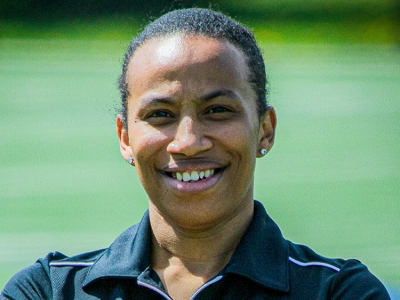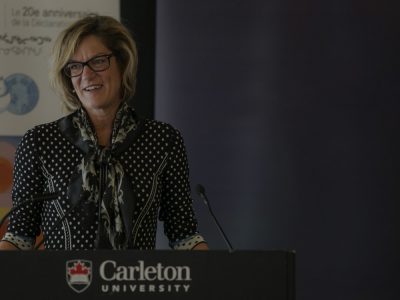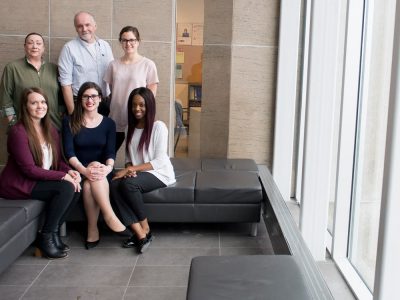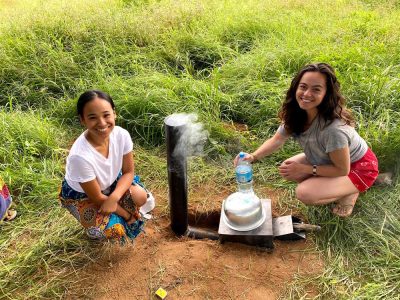By Dan Rubinstein
Photos by Fangliang Xu
Patrice Smith didn’t have her sights set on academic leadership.
She was focused on her work as a neuroscientist, conducting research investigating how the brain responds to strokes, traumatic injuries and diseases such as Parkinson’s, and how we can promote central nervous system regeneration and recovery.
Smith has long been fascinated by the brain and its mysterious inner mechanisms, exploring this area of research since emigrating to Ottawa from Jamaica in 1995.
Her professorial position at Carleton, which began in 2008 after a postdoctoral fellowship at Harvard University, was a perfect opportunity to build a fulfilling career as a scientist and post-secondary educator.
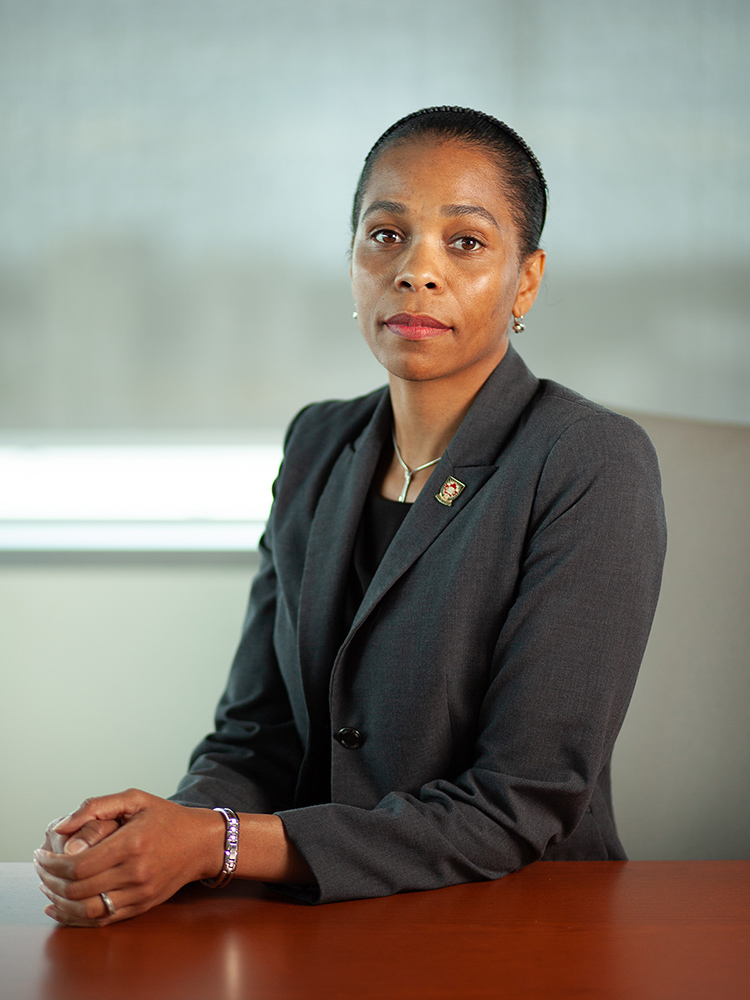
Patrice Smith, Dean of the Faculty of Graduate and Postdoctoral Affairs
But in 2016, she was approached about taking on a leadership role as president of the Carleton University Academic Staff Association (CUASA). After much thought, Smith accepted the challenge, which gave her direct insight into university administration and operations within all faculties and departments on campus.
Her leadership abilities caught the attention of Malcolm Butler, who was then dean of the Faculty of Science, and he encouraged Smith to consider the role of associate dean responsible for academic affairs within the faculty. That post was a natural bridge for Smith to become more engaged in university governance as an elected member of Carleton’s Board of Governors and Senate.
Then, last winter, when the university started looking for a new dean to helm the Faculty of Graduate and Postdoctoral Affairs (FGPA), the search led directly to Smith.
“I didn’t think I had any interest in academic leadership,” says Smith, who began her five-year term at FGPA on July 1 while continuing her neuroscience research.
“But I suppose people saw leadership qualities in me and encouraged me to take on these types of roles.
“One of the main reasons I took this job is because I think I can make a positive difference. There’s so much potential in our students, and I believe that my perspective can add value to what Carleton has to offer them.”
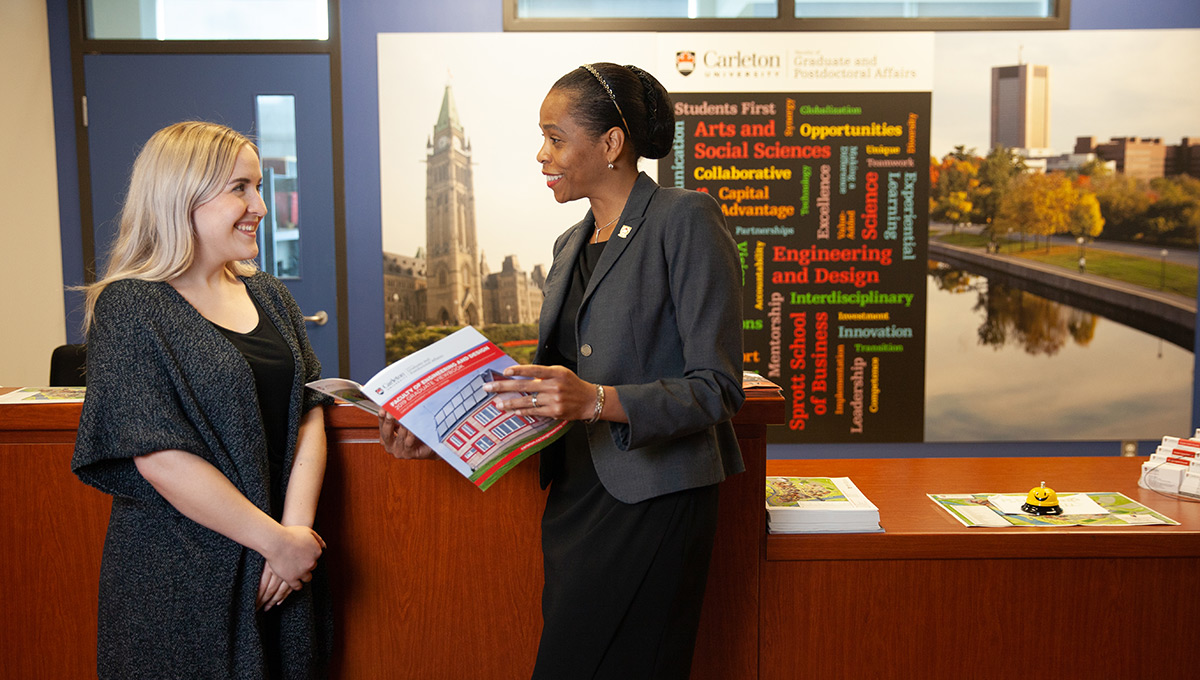
A Unique Perspective on Leadership
When Smith speaks about her perspective, she’s reflecting on both the path she has taken as a new Canadian and her interest in putting students front and centre in her approach to university leadership.
“Everything you see and think is framed by your experiences,” she says, “and by a particular lens.”
Smith’s family immigrated to Ottawa from a small community in Westmoreland, Jamaica, more than 20 years ago.
For her mother, trained in business accounting but with credentials not recognized in Canada, that meant going back to school and becoming a nurse.
For Smith, it meant going to high school for one more year, even though she had already graduated in Jamaica. Canadian universities did not recognize her diploma, so she enrolled in a selection of science and math classes and signed up for a co-op program that sent her to a research lab at the University of Ottawa (uOttawa), where she later landed an academic scholarship.
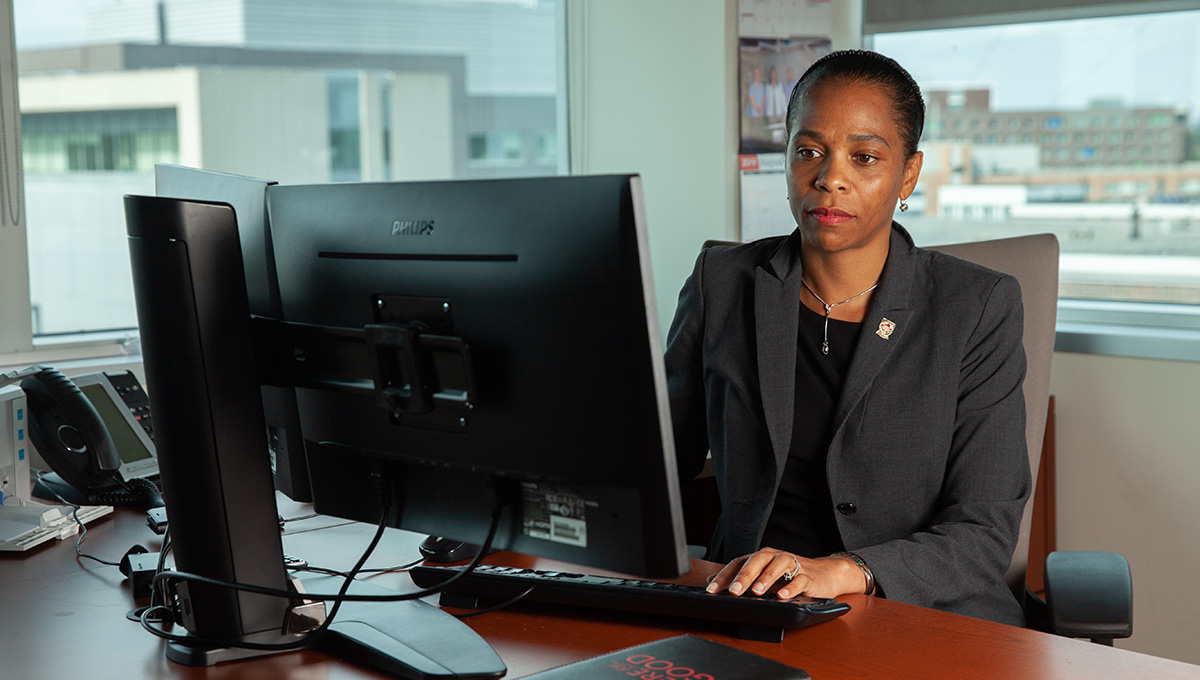
“I knew I wanted to pursue neuroscience research,” she says, “but sometimes you have to be willing to take a step back in order to take two steps forward.”
Because uOttawa did not have an undergraduate neuroscience program (nor, at the time, did Carleton) Smith majored in biochemistry. “If you want to understand the brain,” she says, “you need to know biochemistry.”
To succeed at university, you also need many different types of supports, and Smith was fortunate to be surrounded by people who believed in her and provided opportunities for her to pursue her goals. While working toward her undergraduate degree, she was hired as a summer research student, and she received tremendous support from her supervisors and friends during a PhD in neuroscience at uOttawa.
“It’s been a journey that I haven’t travelled on my own,” she says. “Everybody around me took an interest in what I wanted to do, and helped me and encouraged me along the way. I try to pass that along. I believe it’s my duty to the next generation.
“I hope I can inspire others to pursue their goals,” she adds.
“I am fortunate to be an immigrant woman who has been able to pursue science in Canada.”
Today, when she’s talking to students, whether it’s the PhD candidates she’s working with in her still-active research lab, or others she meets through her leadership roles, Smith remembers all the support she has received from professors, friends, family and colleagues over the years.
“It’s important to engage with students,” she says. “We need to listen to their ideas and opinions about the future direction of the university. I will be deliberate about incorporating student feedback into our initiatives and policies.
“In this era of disruption, we need to make sure we’re doing everything possible to help our students succeed.”
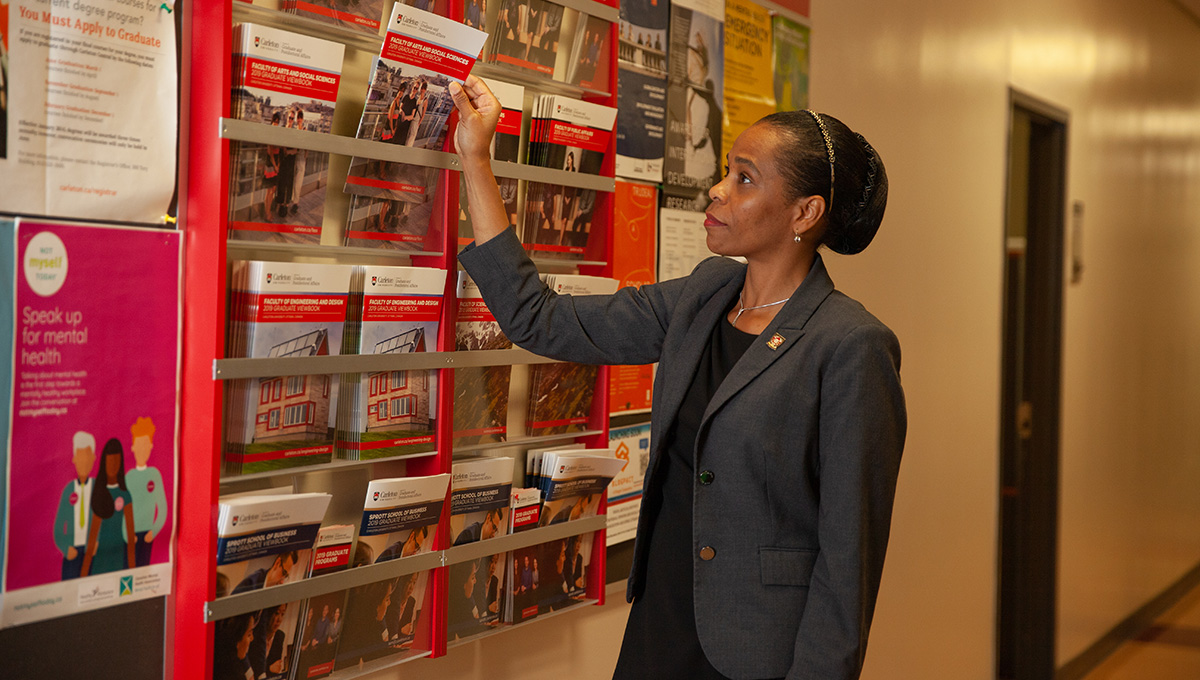
FGPA has Broad Oversight at Carleton
Unlike the five other faculties at Carleton, FGPA has more of an oversight role.
It is involved in the recruitment of graduate students, in connecting students with scholarships, and providing other support and services, such as helping with career advice, professional development and helping students navigate the university environment.
FGPA also plays a critical role in the development of new graduate programs in partnership with the faculties where those programs are based. Broad oversight in supporting program quality, for existing and new graduate programs, is also a major focus of FGPA, in close collaboration with multiple stakeholders on campus.
“You see the whole university,” says Smith, likening the wide scope of FGPA to her work with CUASA, the Board of Governors and Senate.
“You get a really good sense of what’s happening in all the different pockets of the community.”
Although she’s not new to Carleton, Smith has been busy meeting and talking to students and colleagues since starting as dean.
“They told me this would be the lull period,” she laughs during a late August interview, “but it hasn’t been. Thankfully, we have a really good team at FGPA, and we all work together and are focused on the upcoming school year.”
Among Smith’s priorities are the continued enhancement of the graduate student and postdoctoral experience at Carleton, and helping the university continue to evolve as a national and international destination for graduate studies.
There’s already a growing demand for Carleton’s unique programs, especially those offering experiential learning, international exchanges, research partnerships and community engagement.
Smith is hoping to help infuse other programs with these types of opportunities, while ensuring that any new or revised program is aligned with the university’s overarching academic mission.
“There’s a lot to do,” she says, “but we have a very strong base.”
And, in a sense, her own experience as a scholar and scientist are pointing the way forward.
Smith has built a strong research team here in Ottawa, conducting impactful projects at Carleton and internationally. She recently spent a year in the United Kingdom while on sabbatical as a visiting professor at the University of Cambridge, a collaboration that has helped keep her at the leading edge of her field.
“Whenever anybody from Carleton does work abroad, it’s great exposure for our university,” she says. “It lets people know that there’s important research happening here, and that our students are receiving exceptional training. And that’s a message we need to keep on sharing.”
Wednesday, September 4, 2019 in Faculty of Graduate and Postdoctoral Affairs
Share: Twitter, Facebook
